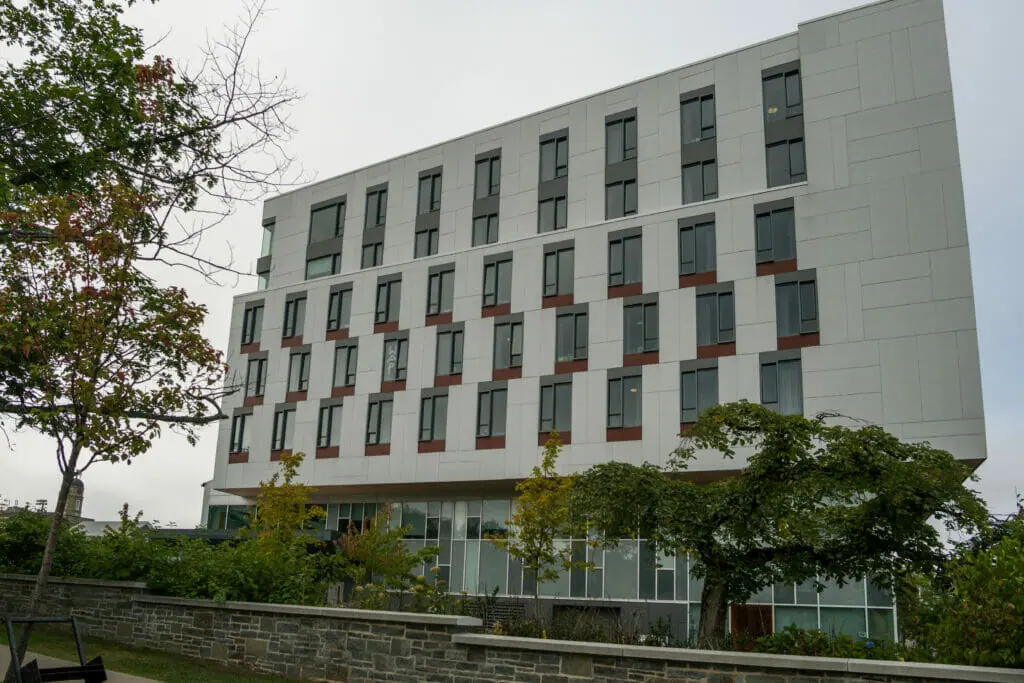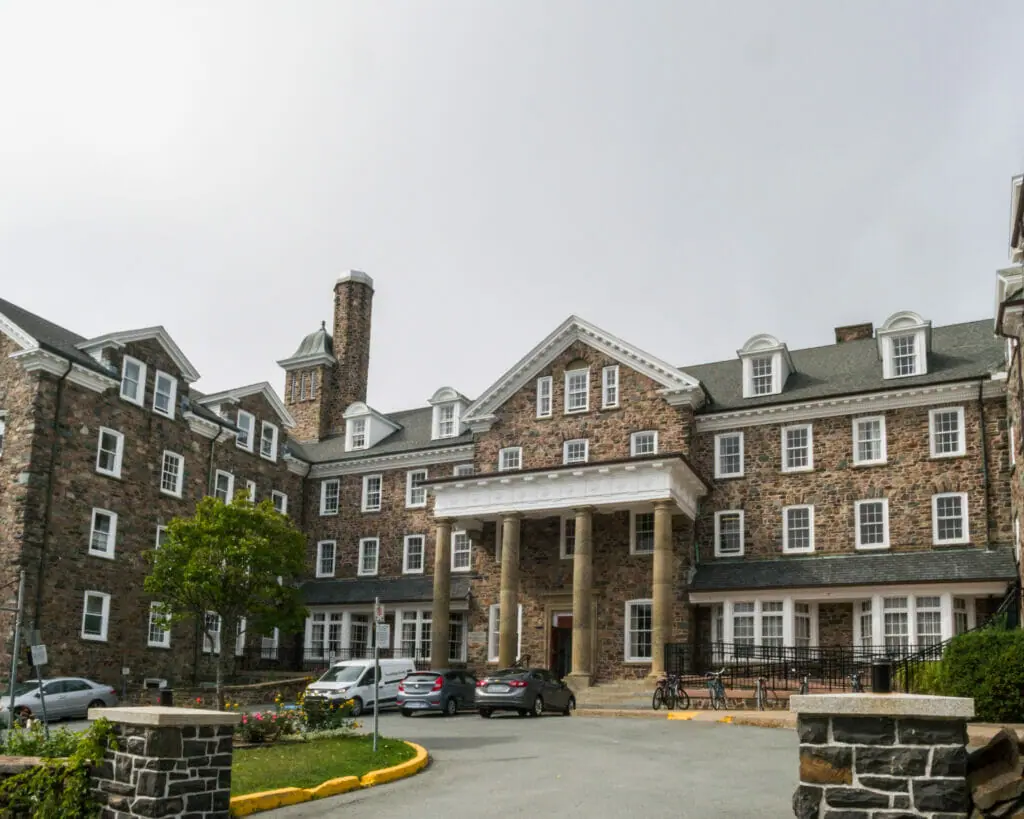While the majority of Dalhousie University’s classes are online for the fall 2020 term, on-campus residences are still open. They’re filled with enthusiastic freshman experiencing their first taste of adult freedom and anxious residence assistants (RAs) concerned about the new aspects of their job.
Though they’re open, residences at Dal will look different this term. The biggest change can be seen in the largest residence facility on campus, Howe Hall. Instead of housing its usual 716 students, the residence will begin the term mostly empty. The building is being used as a self-isolation facility should students contract or become exposed to COVID-19, according to Ivan Joseph, outgoing Dal vice-provost of student affairs.
Around 90 students completed their mandatory 14-day self-isolation period at Howe Hall prior to moving into residence, Joseph said. Additionally, there will be no shared rooms in residence for the fall term.
How living in residence will change
“I mean, it’s terribly inconvenient but that’s life nowadays,” said Shawn Hooper, a fourth-year arts student at Dal who works as an RA at LeMarchant Place residence, when talking about new rules that mandate students to wear a mask at all times when outside of their own rooms.

This is Hooper’s third year working as an RA. When it came time for this fall’s RA training courses, he wanted to ensure this year’s instruction was different. Hooper made sure to check with instructors that everything RAs normally learn would be taught in the context of COVID-19.
This year, students in residence will have more rules to break than before. As the guidelines currently stand, students won’t be allowed to have more than one guest in their room at a time. Students also won’t be allowed to host guests in their rooms from other residence buildings for at least the month of September, after which Dal says they will reassess. Additionally, kitchens will have a maximum occupancy of one person at a time.
“It’s going to be hard to kind of, you know, balance being an RA that wants people to succeed and whatnot, and also be like ‘Hey, no, you can’t make friends’,” Hooper said.
Hooper is also concerned about dealing with students, as methods he previously used to effectively communicate with them will have to adapt to a COVID-19 world.
“A lot of the times when you’re talking to students, your face and your body language can say a lot, but you’re losing your face when you have a face mask on,” he said. “It’s not exactly ideal because people aren’t going to take things I say sometimes very well.”
Entering residence
“I decided to come here instead of stay home ’cause I really wanted to have the experience of being here,” said Lara Mitchell, a first-year student majoring in ocean sciences, who is moving from Ontario into Risley Hall residence. She was self-isolating with a group of friends in Hubbards, N.S. when she spoke with the Dalhousie Gazette.

Mitchell said she’s grateful to be able to self-isolate in a home, as opposed to in residence, with access to a backyard and friends. Once in residence, she wants to ensure she keeps doing things that keep her connected to others.
“Just making sure I do make myself have routines of going out and doing things or going somewhere else to do work or going for walks,” Mitchell said. “Just so I don’t feel alone or by myself a lot.”
Part of an RA’s job this year will be to help students in residence connect, even if it has to be done virtually. Hooper recently hosted an online board game night for students self-isolating in Howe Hall.
“It was about 12 people I think, which is pretty good for having something online. You know with a lot of these programs we have to like hook people with food and whatnot,” he said. “There was nothing that would just randomly get residents to come [to the board game night]. It was just purely the event.”


Recent Comments